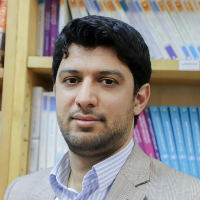The Formulation of Civilizational Theorizing in International Relations
Theoretical evolution in international relations is one of the important topics in the knowledge of international relations. In examining theoretical developments, the central issue is how to create new theories, create scientific debates between theories, and ultimately the emergence of different or conflicting theories. The introduction of the concept of civilization into the knowledge of international relations and the emergence of two readings of civilization have revealed the civilizational analysis of international relations in two different approaches. One approach considers civilization as a fixed and static "state", and the other approach considers civilization as a "process". The common feature of both approaches is that they both acknowledge the context-oriented nature of the theory and accept civilization as a level of analysis and a political category, but their difference lies in providing a different definition of the nature of civilization, the international system and Analytical outputs of civilization application are as a level of analysis. The hypothesis of the current research is that the existence of two conflicting approaches to civilization in international relations has shaped a civilizational debate in international relations and it seems that international relations is on the verge of the emergence of a civilizational theory. In this research, an attempt is made to provide a clear picture of this debate and a meta-analysis of the requirements of international relations theory by referring to the texts and meta-analysis of the generated data using the descriptive-analytical method.
-
Grand Jihad as a Strategy in the Foreign Policy of the Islamic Government (Emphasizing the Views of the Imams of the Revolution)
Rasool Noroozi *
Journal of transcendent Policy, -
Civilizational Analysis and Formulation of the Problem of "Order" in the Islamic World
Rasool Norowzi *
Journal of Crisis Studies of the Islamic World,



